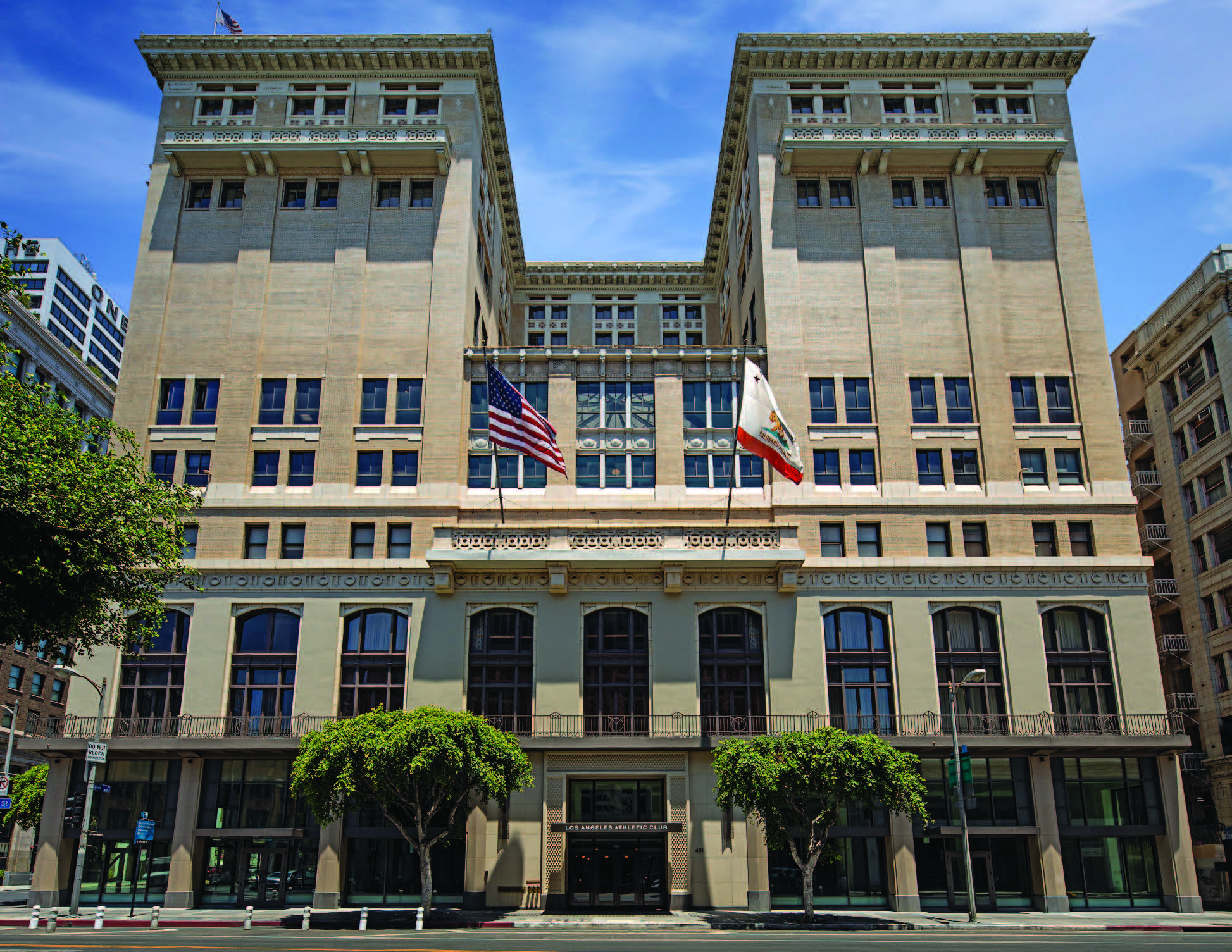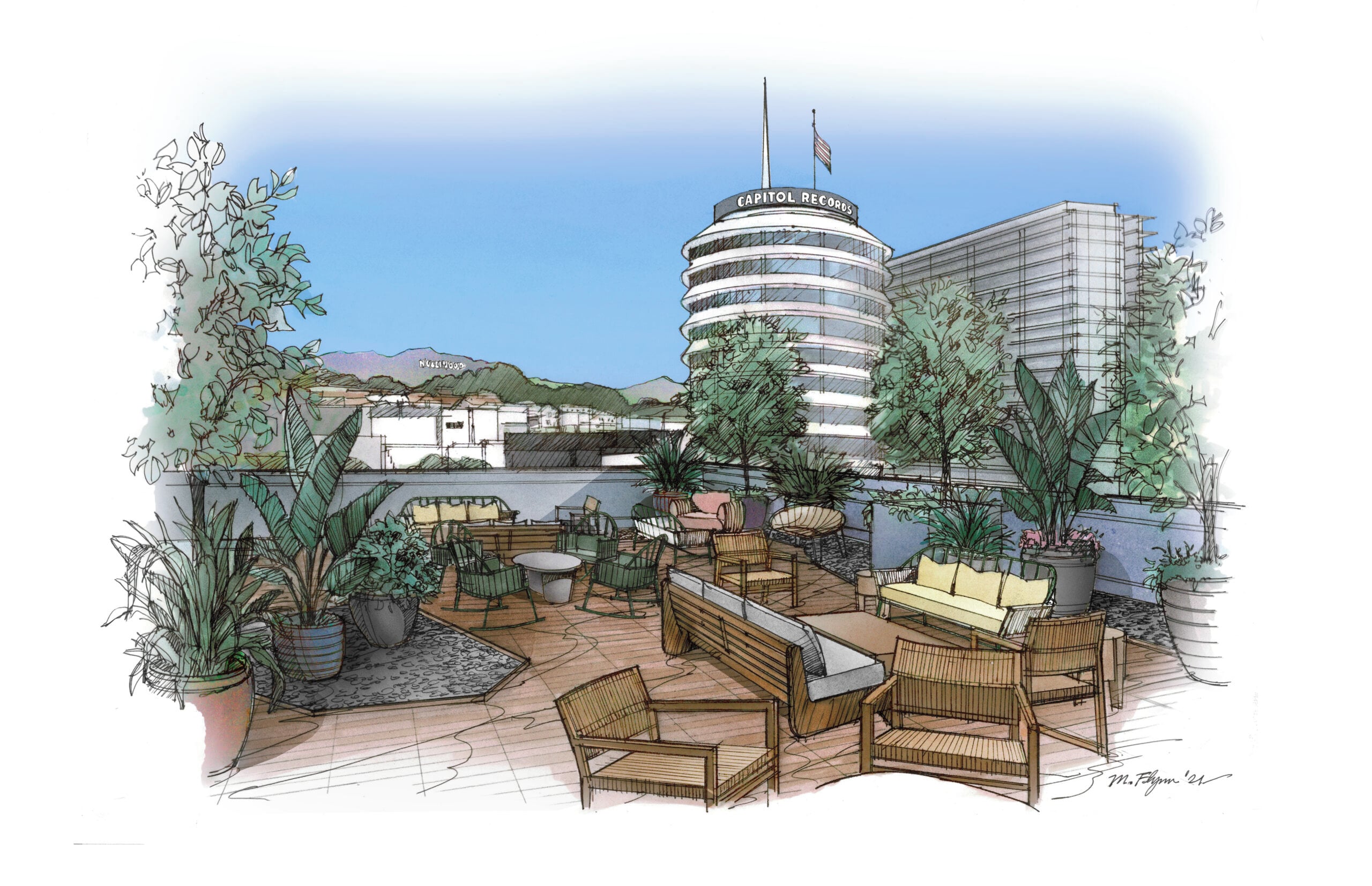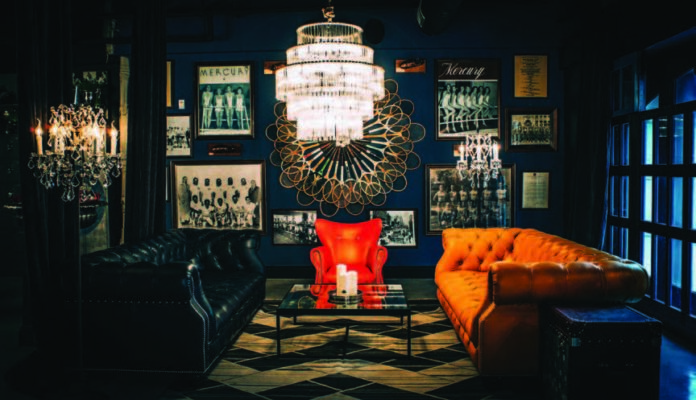Westwood-based real estate investment firm Stockdale Capital Partners is betting big on social clubs, acquiring one in February and has plans to open a new club this June.
“We see the membership business as a growth industry,” said Bill Doak, managing director, Hospitality for Stockdale.
He added that social clubs represented a recurring revenue stream and the specific properties it has acquired fit into the company’s larger strategy of acquiring hotel and hospitality properties, which he believes will do well in the long run.
Doak called the company’s recent acquisition of the iconic Los Angeles Athletic Club in downtown and of the former hClub, which will reopen as The Aster, a new social club, in Hollywood as “opportunistic in terms of pricing.”
He added that both markets are poised to do well long term.
“We believe in Los Angeles as a whole … we believe in Hollywood and downtown and we looked at these assets in terms of scale and the membership aspect is appealing to us and to our investors,” Doak said.
Peter Belisle, market director for the Southwest region of Jones Lang LaSalle Inc., said there was “a lot of confidence in the space,” even more so with the Covid-19 pandemic.
“Covid is what’s driving some of this,” Belisle said. “People are really excited and anxious to get back out in a social environment.”
Social clubs, Belisle said, work well because they have a recurring revenue model. Dues for a lot of the newer social clubs are far less than clubs of years past.
He said older clubs had dues of closer to $12,000 a year while some of the newer offerings have dues of closer to $3,000 a year.
Clubs are counting on people spending money on food and beverages instead of just on membership dues and are also working to attract a younger clientele to ensure that the model is sustainable.
Beyond that, the air of exclusivity is appealing to a lot of people.
“The business model is sound,” Belisle said, adding that markets like Los Angeles lend themselves well to the club model.
Jay Luchs, a vice chairman at the Newmark Group Inc., said the success of restaurants in Los Angeles despite the pandemic and L.A.’s weather allowing people to be outdoors year-round were huge positives that “hit the private club world.”
Luchs said the element of exclusivity and atmosphere were both incredibly important for private clubs.

He added that social clubs could be difficult to create, however, because of a scarcity of space and long timeline necessary to open one. Many, he said, are second-generation spaces that were previously other restaurants or clubs.
“It’s not easy to find a location,” Luchs said. “There’s a lot that goes into it besides just the beauty of the space once it’s done. It looks easy but what goes on to get there from going through the city to parking requirements to codes, restaurant, liquor, it’s not easy to get it all.”
Belisle agreed that is hard to create standalone social clubs and expects to see more of them attached to high-end apartment and condo properties and boutique hotels.
And while not all clubs have survived the test of time, experts agree that overall the social club scene in L.A. is a growing market that is expected to do well as people look to get out of their homes and have a place to go that feels exclusive to them. In addition to the two social clubs, Stockdale Capital is still acquiring traditional hospitality assets as well including the 175-room JW Marriot Santa Monica Le Merigot last year.


Los Angeles Athletic Club
Stockdale acquired the athletic club downtown for an undisclosed sum in late February.
The club, which is 186,000 square feet, has been located at Seventh and Olive streets since 1912. It was founded much earlier in 1880 and claims to be the first private club in Los .Angeles.
The 12-story building has 72 hotel rooms, more than 17,000 square feet of ballrooms, meeting and event space, an indoor swimming pool, basketball court, track, fitness studios and a spa among other features.
Doak said the property was desirable because it not only offered the well-known club but also has 72 hotel rooms.
“We saw its mixture of amenities that played into our plan of looking at assets that have a strong legacy of success and have come on the market for a variety of reasons,” he said. “We felt like it was a good opportunity to come away with an iconic asset.”
CubeSmart was the seller of the property, according to Stockdale. The storage company recently acquired the athletic club property from downtown-based LAACO Ltd., a family office of the Hawthaway family.
CubeSmart purchased LAACO’s Storage West portfolio which included about 60 self-storage assets for roughly $1.7 billion. LAACO was also the owner of The Los Angeles Athletic Club.
Doak said Stockdale was working with the Hawthaway family on acquiring the club and after the transaction continued to work with CubeSmart to purchase the asset.
Since 2015, more than $29 million has been spent to improve the property.
Doak said Stockdale would “continue that work” as well as re-introduce multiple food concepts.
“We intend to polish the asset,” he said.
One thing that won’t change is that it will remain a private club, Doak said.
The acquisition also includes the eight-story Olive Park Garage next door. The garage has 421 parking spaces in addition to 12,000 square feet of office and retail and a surface parking lot.
Aster
Last April, Stockdale Capital Partners acquired what was then hClub at 1717 Vine St. in Hollywood. Prior to that, it was the Redbury Hotel.
In 2019, the property underwent substantial renovations including the addition of an outdoor pool, rooftop restaurant and an open-air lounge. The property has 35 guest suites, private event space, a fitness center, recording studio and other amenities.
The property will be reopening as The Aster, a private, adults-only members club, which is expected to open in June.
The club is being managed by Salt Hotels.
The company’s co-founders, David Bowd and Kevin O’Shea, said The Aster was the group’s first social club. The company focuses on hotel properties.
“In this post-pandemic world, people are not tied to the office, and they are living differently … these types of hospitality environments, there’s a lot of demand for it right now,” O’Shea said. “This is certainly a very robust version of this but there will definitely be elements from this we will use in our future projects.”
Bowd said the space created by hClub at the site was nicely done but there were ways to improve the property.
“We felt a gap in the market that was a membership club leading with hospitality and running a membership club like you do a luxury boutique five-star hotel where it’s more about what the guests are wanting than about being cool or bringing brand standards in,” he said. “The space has such incredible facilities … what I personally really love is this mix of it being part club, part hotel, which means that like in any hotel environment, no two days are ever the same, no two crowds are ever the same and that really appealed to us as something that would be different.”
O’Shea said hClub left “some great bones to work with” and he was looking to build on areas of the club that were successful. Programming, Bowd added, will be a big part of The Aster.
The Aster’s hotel rooms will be open to the public.
Some members of hClub will return while Bowd expects people from a variety of backgrounds to join as well. Memberships cost $3,600 per year.
Doak said Stockdale was open to acquiring other clubs as well, adding that these first two fit into the company’s hotel fund, having both guest rooms for the public and facilities for club members.
“We believe in the return of the hospitality business as a whole,” he said. “We’re excited about what we’re going to be able to do.”
And Belisle expects the social club scene to grow in Los Angeles as some new concepts open, some make their way from overseas and others that are already here expand into additional locations.

